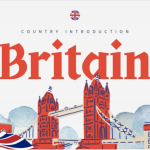Written by Daisy Reece
As Benjamin Franklin once said, ‘an investment in knowledge pays the best interest.’ As a rule of thumb, parents hope to give their children the best start in life. The schools parents choose for their children will play a fundamental role in their development and is often viewed by parents as one of the most important parenting decisions that will be made. Many UNHWIs look abroad for education options – with word of mouth stretching thinner the further away from home they are, how can they be sure that their children will attend the best schools and universities out there? With an ever growing amount of institutions that offer education, the choice can seem daunting. Should you go private? If you do, should your children be day pupils or boarders? Are Ivy League colleges and Russell Group universities the only way forward?
The good news is that you will not be the first or last parent to have thought about these questions, and as a result there are a multitude of resources that offer guidance to parents making these difficult decisions. If looking in the U.S, websites such as GreatSchools publish data and reviews from parents of children attending the schools in question. For a more objective perspective, UNHWIs may want to consider ordering a bespoke report from an organisation such as SchoolMatch – another organization to offer a similar service is the American School Directory. If the UNHWI is already certain that they would like to send their children to a private school, research conducted through the National Association of Independent Schools and the Council for American Private Education would perhaps provide the best answers.
If you’re interested in perusing schools across the pond, the U.K is also host to a variety of both state and public schools. Similarly to the U.S, organizations such as Best Schools are a source of impartial advice that hopes to match the child with the best independent school for the family. For a broader view of the entire education system, one might turn to the Good Schools Guide; when faced with a decision process that may start when the children turn 3 or 4, it may be best to consult an external advisor on which preparatory school would be best for your child.
It is important that parents understand the advantages and disadvantages of the different education opportunities that the U.S and U.K offer. On the one hand, private schools certainly seem the obvious choice for a parent hoping that their child mixes with children of similar background and ability. In addition to making connections that will potentially last for a lifetime, children who attend private schools are more likely to gain entry to the more exclusive universities and stand a greater chance of being employed after graduation. Recent statistics from a British report state that although only 7% of the population attend private or independent schools, 71% of senior judges, 33% of MPs and 44% of the Sunday Times Rich List attended fee paying schools.[1] Entry into an elite career is not the only benefit of attending a private school; well funded schools can offer more impressive school trips and train children in more exclusive sports, such as polo or lacrosse. Classes are smaller, with more individual attention paid to each child, and subjects that are not available widely in government run schools – e.g, Latin and Greek – are fundamental to fee paying education. Foreign language programmes begin earlier and school equipment is of the highest quality.
If decided on a private school, the UNHWI must now decide whether to send their child to a boarding school, or a day school. During term time at boarding schools, children stay in boarding houses and only return home during school holidays or weekends, depending on the parents’ preference. For those who wish to send their children abroad, boarding schools offer a convenient solution. It also means that children may become more independent and self-reliant. Simultaneously, many parents feel that spending time with their children is invaluable and do not wish to forgo the moments that cannot be regained; if the UNHWI lives locally, children may then attend day schools. Less immersive but allowing children access to both academic and school life, day boarding is a popular alternative for many parents.
Though it may seem like private schools are the obvious choice for the UNHWI, many key American figures in the business world attended public school. (Confusingly, the term public school in U.S English means comprehensive in British English, whereas public school in British English means fee paying). Steve Jobs, Warren Buffet and Michael Dell all hailed from the American public school system. It might just seem like the cheap option, but benefits of the public school system include the diversity of the student body and the fact that teachers tend to hold more qualifications, as teachers in the private school system do not have to have the same typical qualifications that government sponsored schools do. Moreover, when considering further education, prestigious colleges and universities are conscious that their student body should not be dominated by those with fee paying backgrounds. As a result, a certain amount of places are reserved for students of state/public schools, and high performing students may be looked upon more favorably.
So, how should a UNHWI differentiate between the US and the U.K? It could be that a UNHWI chooses to send their child to school in the country they hope to see their child attend university. This is well advised as schools in the country in question will have a deep understanding of the admissions process and can offer students the best guidance. The education systems differ enormously; in the U.S, applicants do not need to know which subject they will major in before applying. This gives students time to decide where their particular focus will lie. In contrast, the U.K education system requires students to choose the subject they will study before applying. It is not an easy task to switch subjects, though universities in Scotland offer students the opportunity to take outside courses and decide upon a change in ‘major’ up until mid-way through their second year.
When it comes to university, UNHWIs may be aware of the terms ‘Ivy League’ and ‘Russell Group’. The former refers to a group of prestigious colleges in the U.S with highly competitive entry, and the latter is a similar band of British universities that are well regarded. Employers tend to hold students from these universities in high esteem as they are generally high achievers who have successfully completed a rigorous education. Entry to these universities is not simply a matter of strong academic performance – for that should be taken as a given when applying – but also a matter of student’s participation in sports, music and charitable work. Given that entry to these institutions is highly competitive, the admissions teams screen candidates based on their prior experiences, passion for learning and how well they will fit in at the university that they are applying to enter. Traditionally, both groups of exclusive universities produce high achieving graduates. Yet, in today’s day and age, with new establishments developing constantly, it is well worth considering the merits of a university that falls outside of these brackets.
If your child is pursuing a more vocational career – such as fashion or even engineering – it is worth considering that many institutions outside of the Ivy League or Russell Group category may offer better options for that particular subject. The US based MIT is not an Ivy League school, yet it is consistently ranked as the best university in the world by the QS rankings – including in all six categories of engineering (architecture as well as chemical, electrical, mechanical, aeronautical and civil and structural engineering). For creative subjects, it is worth purveying rankings by subject, and not by university. Many universities have a particular reputation for a specific field – though one may have the Russell Group or Ivy League stamp of approval, it does not mean an employer will not appreciate an applicant who has been taught by the industry’s leading academics more.
It should also be kept in mind that university rankings differ widely depending upon which organization conducts the research; different listings compare different attributes of the further education experience. Though this complicates matters further and makes the task of selection that tiny bit more elusive, the graduation of your child from the university that was the best match for them will be a moment that a parent will never forget. Watching a child grow and develop is one of the greatest rewards a parent reaps; as your child follows the well-considered schooling choices you have made, you will be sure that you have entrusted them to the most knowledgeable hands.





